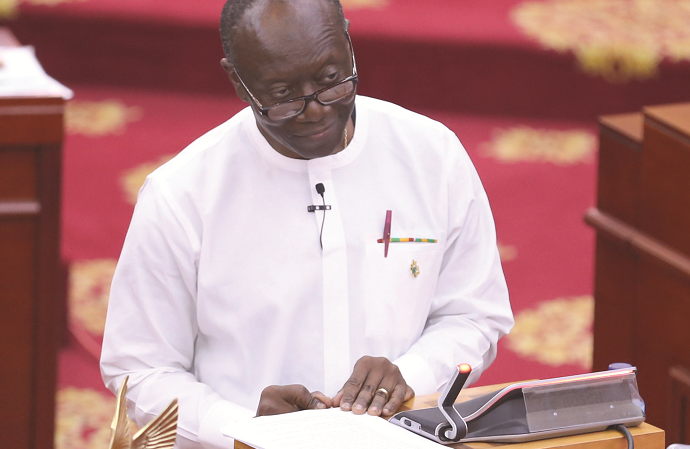
Opposition to budget - Goodwill or cynicism
Effective leadership is not about making speeches or being liked, leadership is defined by results not attributes. Peter F. Drucker. Dr Martin Luther King has noted importantly that, “No man ever reached to excellence in any one art or profession without having passed through the slow and painful process of study and preparation.”
Advertisement
This is what others refer to as experience is the best teacher.
The many years of experience in financial resource mobilisation and management gained by the Minister of Finance, Mr Ken Ofori -Atta, was made manifest when he presented the first budget and economic policy of President Nana Addo Dankwa Akufo-Addo last week Thursday. That underlined the philosophy espoused by Dr Luther King.
The anticipation, though, was that even if there was going to be disagreements over the key objectives of the budget, it would not have been such as to divide the country along the New Patriotic Party (NPP) and National Democratic Congress (NDC) divide. Thus, was the budget “Asempa” or “419”? There are many Ghanaians who hold the view that our democracy must grow and that the time has come for us all to think about how to get our country out of dependence on donors and become economically independent.
We may not all agree about every government policy, including the policy on free senior high school (SHS). What baffles some, however, is where some politicians claim credit for a policy but because it is being pursued by another political party, it has to be condemned unequivocally.
One of the major development landmarks that NDC could claim credit for was the promise to build 200 new Day SHSs between 2013 and 2017. Activists and functionaries of the party were never tired blowing the horns of the party suggesting that 123 of the schools were completed. However, when President John Mahama presented his last State of the Nation address, he quoted 43 as having been completed. Yet functionaries of the NDC will swear that it was successful.
We may not all agree about every government policy, but where any party claims that it is the originator of any policy but turns round to condemn the implementation of the same policy because it is being pursued by another political party, then objective observers have cause to worry.
One of the facts not disputed between loyal supporters of the NPP and NDC is the fact that the 1992 Constitution enjoins our governments to pursue progressively free secondary school education. When the NDC in 2015 decided to make secondary education free for day students, it was seen as a welcoming initiative.
Come 2017, when the NPP announced that secondary school education will be free for all students entering from the next academic year, instead of receiving diffused endorsement because it is a continuation of what was commenced by the previous administrations and equally worthwhile, what we are hearing from some is where will the money come from, as if the sources of public funding have ceased.
While there are genuine concerns about how we can provide free secondary education to all qualified applicants, including students whose parents are well-to-do and that there is the need for selective support, the question as to where the funding will come from can only be cynical rather than a national concern of goodwill.
Again, we must look at the question of the taxes that have been abolished and the reaction from certain quarters. Last year, the government had series of meetings with the Trades Union Congress on the need to scrap some of the taxes. At the time, the alibi pleaded by the government was that whilst the concerns of organised labour was worthy of consideration, government was helpless in certain respects because it was the representatives of the people, through Parliament, who passed the legislation imposing the taxes, and thus government could not unilaterally abolish those taxes.
The basic understanding then was that if Parliament could do something about the taxes, the government would not pervert the process, but that it was too much asking the government alone to do something about the situation. Where the new government has found the courage to ask Parliament to abolish those same taxes that the previous government agreed with unionised labour needed to be reviewed, then it requires that the process should not be condemned unequivocally.
Ghanaians who genuinely want to see their areas benefit from the projects proposed under the budget must be interested in doing all that they can to help government mobilise the resources to see through the implementation of a larger proportion of the projects. If we sincerely and genuinely believe that those projects would bring about functional and qualitative development to our people and country, then we must demonstrate goodwill rather than cynicism. We must believe in our country.



